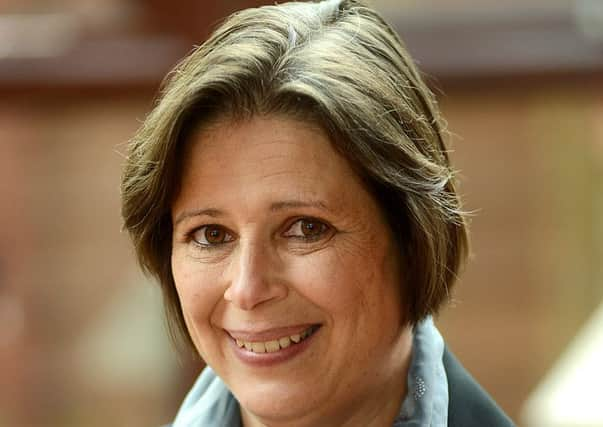The Staff Room: An insight into education in the district written by Catherine Jackson


My head of department asked me, as part of a writing challenge some time ago, to think about which teacher inspired me throughout my school years. Partly because much of my education is a blur, lost in the mists of time, I couldn’t think of anything dramatic. There is a connection with my opening paragraph, if you can bear to be patient.
I certainly attribute my interest in English literature to my A level English teacher, Mrs R, but was there anything in particular she said or did as a ‘one off’? There was not.
Advertisement
Hide AdAdvertisement
Hide AdMy colleague had a teacher who, he told me, set fire to pupils’ essays in bins, who flamboyantly and dramatically pushed his students to achieve the best they could. It seemed to work for him, and he was my head of department’s inspiration. (This, I have to make clear, is not a practice he follows!)
I had another teacher who made us stand on desks to help us learn – not a teaching tool which would go down well in today’s risk-averse society, but it was certainly remembered by those of us who were made to do it.
Mrs R could not have been more different. She loved what she taught, and in the 80s, we had time to read around the texts we studied. In fact, that’s what I remember – a quiet, calm and poised teacher, reading Seamus Heaney, Samuel Beckett, and Sean O’Casey with us – all writers who gave us a feel for Irish culture - before studying our set text, James Joyce’s Dubliners. I don’t know of any English teachers in today’s climate, who have time in our examination-driven society to cover anything else just for the joy and enrichment of it.
What I began to realise was that I wanted to be like her, so I tried to copy her. It was not, sadly, a great success in many ways – I am rather too loud and unsophisticated compared to Mrs R, but wanting to be like her inspired me to work and work until something clicked.
Advertisement
Hide AdAdvertisement
Hide AdThis got me to thinking about the ways I have learnt throughout life. When I was younger I had numerous ski lessons and was taught about weight on this foot or that foot, and on leaning forward and crucial positioning with hips in relation to the direction of the slope. It was all an utter waste of time. Eventually I learnt by copying others on the slope. Several experienced skiers tried over and over again to tell me what to do. It didn’t work. Only by following other people down the slope and mimicking their turns and positions was I eventually able to become half decent.
All teachers know that educational theory tells us there are different types of learners: the kinaesthetic learner, who needs to ‘do’; the visual learner, who needs to see; the aural learner, who needs to hear…why not the ‘copier’?
Perhaps this is something we should use more in the classrooms. But it takes time. I didn’t learn to ski in one day, and I certainly didn’t become good at English at school in one term. It took me the full two years of copying and emulating. Now, still, as a teacher, I only improve by watching and learning from others.
How, I wonder then, can we put pressure on our sixth form students and expect them to be ready for AS examinations in the lower sixth? – I certainly was not ready for exams after just one year. I wish I had recorded the number of times I have told pupils and students of English as well as their parents, that they need to be patient. It’s not just learning a formula and ‘Hey presto! You’ve got it’. It doesn’t work like that.
Advertisement
Hide AdAdvertisement
Hide AdYes, we need the formulae, but it’s the time, practice and frankly copying the styles of others, both literary giants such as Shakespeare or Wordsworth, as well as pupils’ own contemporaries, which reap the rewards in the long run.
Students over countless generations have been castigated for copying and not having original thoughts. I’m certainly not condoning pupils taking mobile phones or sneaky notes into exams to help them remember, but I think copying has had a bad press.
It’s the way we grow from babies to children, and frankly, the way we develop as adults, so why should we stop our young people from doing it?
Certainly we need original thinking, and creativity, there’s no doubt about that, but maybe our students could find their own beautiful voices more effectively if we allowed them a little more time and freedom to copy. Just a thought.